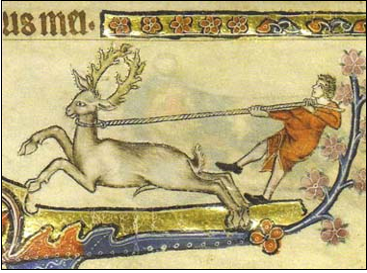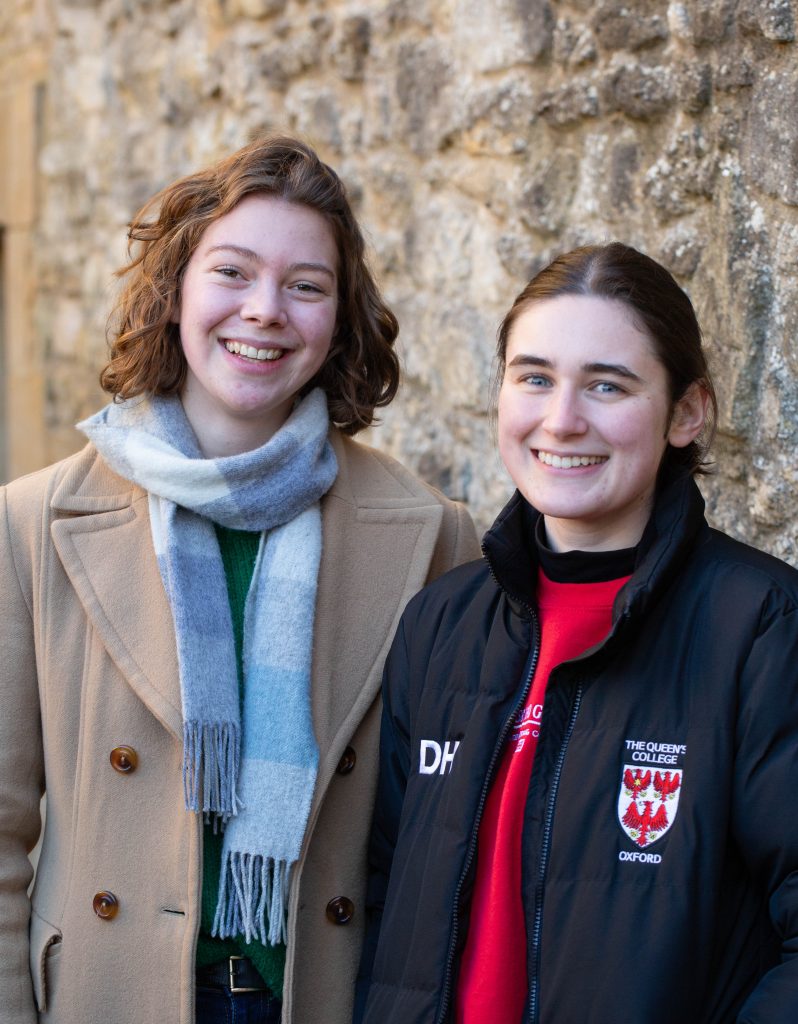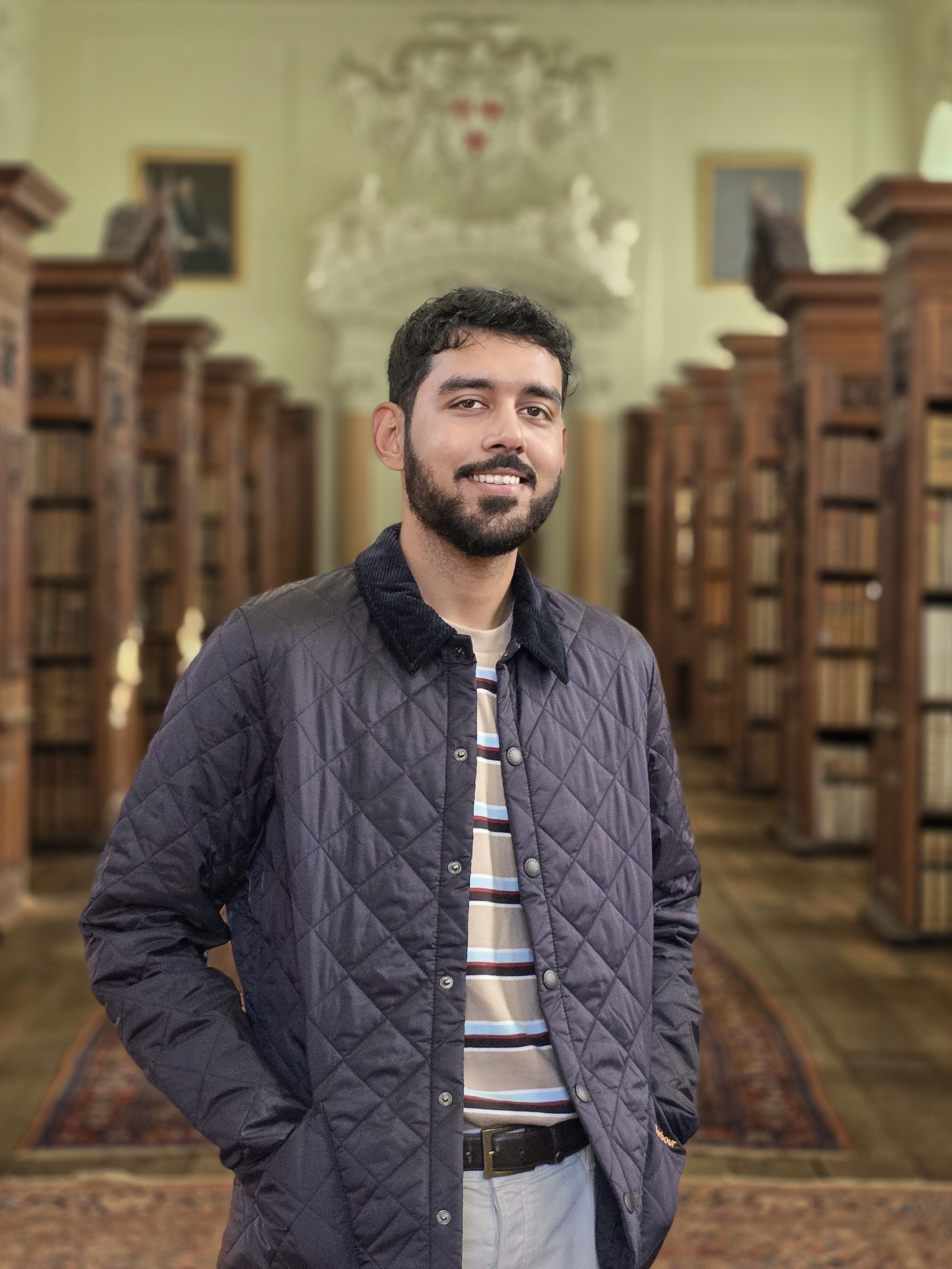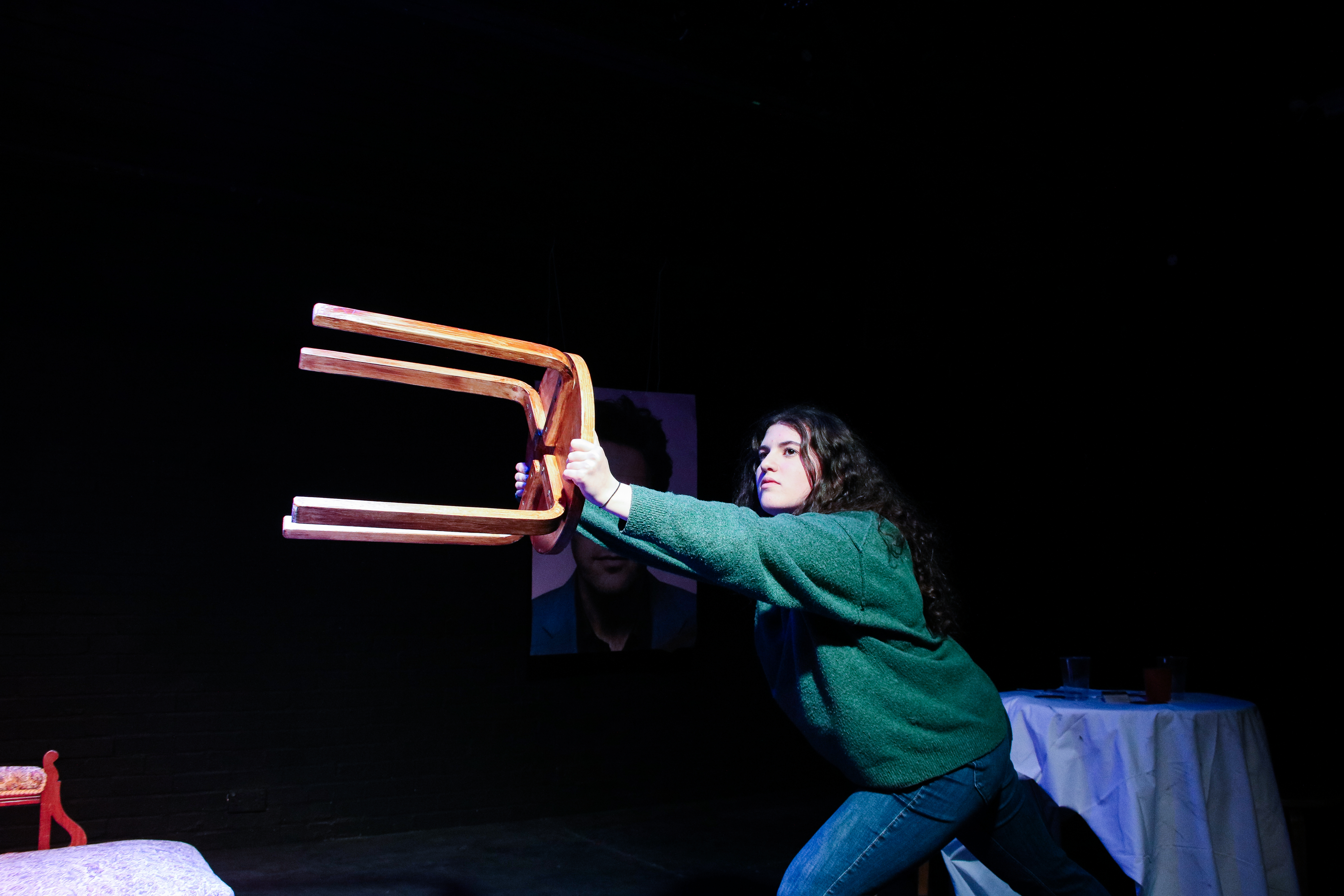Each year the College holds a Medieval Yule Feast to which everyone who studies English is invited. Current students Bryony and Dani tell us all about this special event.
What is the Yule Feast?
The Yule Feast is an annual dinner, when everyone who studies English in some capacity comes together. We eat traditionally medieval food (well, as close as possible to it; we don’t go out and hunt or anything!), and drink mead. It’s been a tradition since 2011, and is organised by both the English tutors and the second-year students who study medieval literature. The students have the fun of organising the various challenges and games which turn it into much more than just a dinner!
What considerations go into its planning?
One of the Queen’s English tutors is responsible for the menu, which is chosen by looking through genuine medieval recipe books! We’ve had things like pigeon pie, pea pottage, jellied fish, and fruit crumble. Every year there are a few loaves of ‘King Bean Bread’, one of which hides a bean. Whoever finds the bean is then crowned king for the rest of the meal…
We normally have a mixture of games, readings, and music alongside the dinner itself. A recent addition has been some challenges, which everyone has to subtly do during the meal, but can’t reveal to their neighbours. There’s some medieval-themed music too, this year an instrumental version of ‘Down in Yon Forest’, as well as the first- and second-years stumbling through their readings in both Old and Middle English!
What’s the quirkiest part of the evening?
The quirkiest bit has got to be the Old English singing. It’s not the easiest to find translations of modern Christmas carols, but we’ve managed an old and modern English group sing-along to Rudolph the Red-Nosed Reindeer, where those who can read Old English stand up to sing a line, followed by the same line in its modern form. It’s a bit chaotic!
What’s the purpose of holding the event?
It’s a great way of getting to know everyone studying and teaching English, from first-years to PhD students; having a seating plan which mixes people up is a lovely way to do this, as it creates a sense of community beyond just your year group.
What would you say to anyone considering applying to study English at Oxford?
To those applying to Oxford for English, don’t worry about what it is you have read or not read. Read the books you genuinely love, rather than because they look good on a personal statement. The tutors are not looking for people who have struggled through books because they are deemed scholarly or complex; it’s much more about how you think about texts, and your own way of approaching them. It might sound a bit cliché, but be yourself and follow your own interests.
What do you like about Queen’s?
The English tutors in particular put in a big effort to organise interesting events, whether that’s a museum archives visit or a trip to the Globe Theatre in London. It means the degree’s a lot more than just time sitting in a library!
And in general… the food at Queen’s is brilliant – it’s a lot cheaper than at most colleges, but really tasty and varied. Being so central is always a plus, too.
Can you recommend a book?
Yes! Read And the hippos were boiled in their tanks by Jack Kerouac and William S. Burroughs: it’s absolutely insane but also (nearly) true, which you will realise is ridiculous if you do read it!
Polly Barton’s Fifty Sounds is also brilliant. It’s a memoir / musing about Barton’s time in Japan, written in a kind of beautiful prose poetry, and covering everything from onomatopoeia to car crashes.
Dani (English, 2022) and Bryony (English and Spanish, 2022)
Former Junior Research Fellow Dr Eleanor Rosamund Barraclough, now Senior Lecturer at Bath Spa, created the Yule Feast tradition in 2011.

Photo above: David Olds



